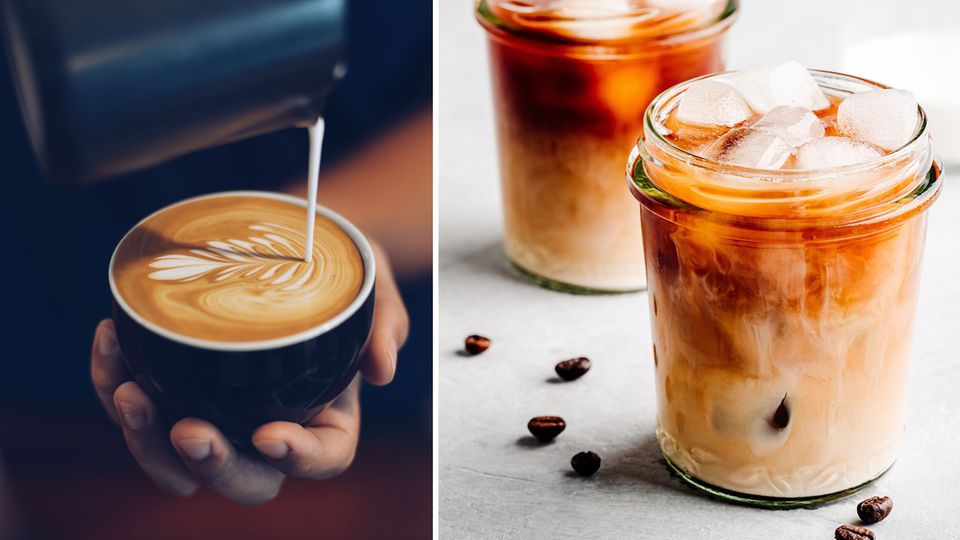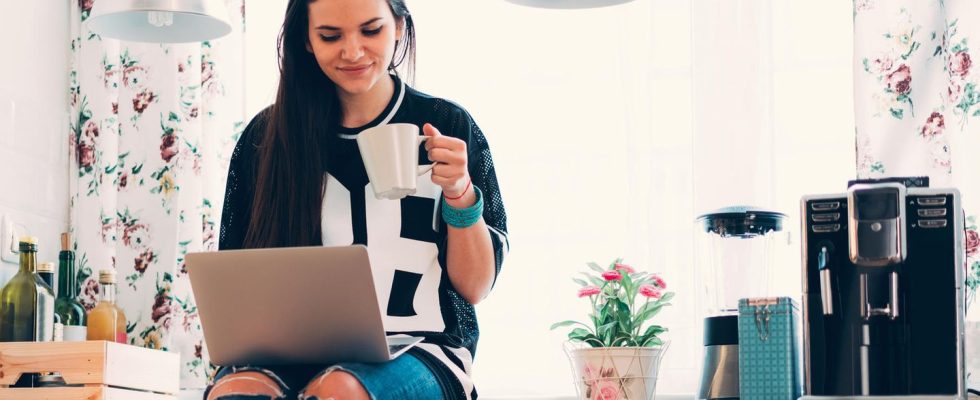Coffee
Stiftung Warentest compares 19 fully automatic coffee machines – two spit out harmful substances
The coffee machine can make the difference, especially in the home office
© martin-dm / Getty Images
For many people, a delicious cup of coffee is part of their morning routine. The easiest way is to just press one button on a fully automatic coffee machine. But which one should it be? Stiftung Warentest tests 19 devices in the current issue – and has to downgrade two models.
One push of a button – maybe two – and the cup fills up. Fully automatic coffee machines have become an integral part of many German kitchens. But if you look for a suitable device, you will be completely overwhelmed by the offer. So that’s helpful Stiftung Warentest compared 19 devices in the current issue and gives tips on which models should be shortlisted – and which ones shouldn’t be.
First of all: Of the 19 devices tested, 17 scored “good” – so there are not many differences to worry about. The biggest flops, both rated 2.9 (“satisfactory”), come from Krups. Because both the Evidence One EA895N and the Evidence Plus EA8948 were devalued. The reason given by the testers was that when pouring the coffee there was a “release of nickel above the limit value for drinking water supplies, but below the Council of Europe’s specifications for the transfer of metals in contact with food.” In short: pollutants to go.
De’Longhi dominates the fully automatic coffee machine tests
The front seats belong to one brand – De’Longhi. Three machines were able to prevail against the competition from Jura, Saeco and Philips – albeit only just. As a reminder: actually all machines are “good”, so it’s just a matter of nuances. The test winner with a grade of 1.7 (“good”) and therefore the best overall result is the De’Longhi Eletta Explore ECAM450.55S. According to Warentest it costs 950 euros – you can currently find it in price comparisons on the Internet for around 700 euros. The testers praise the preparation, handling and safety. However, the model was already the winner in a previous test – so it is not new.
Hard liquor made hot
These coffees heat you up: six delicious variants with a shot
Among the machines that Warentest names in an issue for the first time is the De’Longhi Magnifica Evo ECAM290.61.B won. The price is around 480 euros. With an overall grade of 1.9 (“good”), the device is almost on a par with the test winner, but performed worse in the disciplines of preparation, handling and noise emissions. The machine has another, very underestimated advantage: in the opinion of the testers, the presetting is perfect. While other machines have to be gradually tuned for the best result, the Magnifica Evo delivers from the first cup.
Luxury isn’t actually worth it
What’s frightening is the fact that luxury is hardly worth it. At a whopping 2200 euros it is Jura Z10 by far the most expensive machine in the field – and has to settle for a shared seventh place. Although the machine consistently received good marks, in a very close comparison, Stiftung Warentest believes there are obviously enough better – and significantly cheaper – alternatives.

If you are planning to buy a fully automatic coffee machine, make sure that the machine is easy to clean and that all parts can be removed. Oily and wet coffee grounds in particular quickly become moldy. If the machine has a lot of joints and corners that are difficult to clean, this can endanger not only the taste but also your health in the long run. A clean, fully automatic machine is the be-all and end-all for good coffee.
You can find the complete test and other devices in comparison for a fee test.de.
This article contains so-called affiliate links. Further information are available here.


